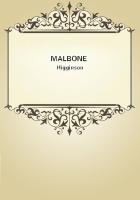For-205. First. As in some countries the person of the prince by the law is sacred, and so whatever he commands or does, his person is still free from all question or violence, not liable to force, or any judicial censure or condemnation. But yet opposition may be made to the illegal acts of any inferior officer or other commissioned by him, unless he will, by actually putting himself into a state of war with his people, dissolve the government, and leave them to that defence, which belongs to every one in the state of Nature. For of such things, who can tell what the end will be? And a neighbour kingdom has showed the world an odd example. In all other cases the sacredness of the person exempts him from all inconveniencies, whereby he is secure, whilst the government stands, from all violence and harm whatsoever, than which there cannot be a wiser constitution. For the harm he can do in his own person not being likely to happen often, nor to extend itself far, nor being able by his single strength to subvert the laws nor oppress the body of the people, should any prince have so much weakness and ill-nature as to be willing to do it. The inconveniency of some particular mischiefs that may happen sometimes when a heady prince comes to the throne are well recompensed by the peace of the public and security of the government in the person of the chief magistrate, thus set out of the reach of danger; it being safer for the body that some few private men should be sometimes in danger to suffer than that the head of the republic should be easily and upon slight occasions exposed.
206. Secondly. But this privilege, belonging only to the king's person, hinders not but they may be questioned, opposed, and resisted, who use unjust force, though they pretend a commission from him which the law authorises not; as is plain in the case of him that has the king's writ to arrest a man which is a full commission from the king, and yet he that has it cannot break open a man's house to do it, nor execute this command of the king upon certain days nor in certain places, though this commission have no such exception in it; but they are the limitations of the law, which, if any one transgress, the king's commission excuses him not. For the king's authority being given him only by the law, he cannot empower any one to act against the law, or justify him by his commission in so doing. The commission or command of any magistrate where he has no authority, being as void and insignificant as that of any private man, the difference between the one and the other being that the magistrate has some authority so far and to such ends, and the private man has none at all; for it is not the commission but the authority that gives the right of acting, and against the laws there can be no authority.
But notwithstanding such resistance, the king's person and authority are still both secured, and so no danger to governor or government.















